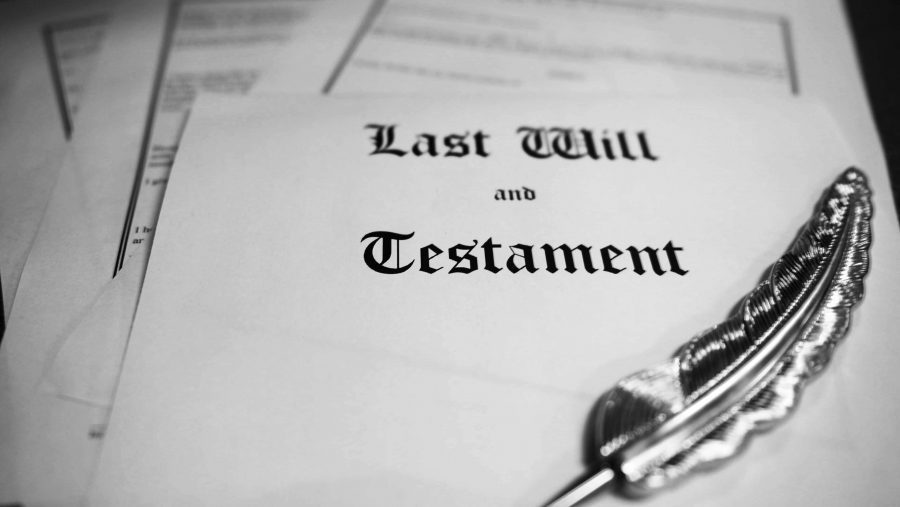
Short-Term Care Insurance: A Solution to Gaps in Coverage
July 31, 2017Arbitration Clauses and Nursing Home Admissions
September 22, 2017When most people think about estate planning documents, the first thing that comes to mind is a Will. For most people, making sure their property gets passed on to their spouses, children, and other relatives and friends is important.
In the terms of a Will, you can name the Executor who will handle your estate after your death. You can also name the beneficiaries of your estate. You can give your jewelry to your daughter and your tools to your son. A certain percent can go to your favorite charity. The rest can be divided as you direct.
But what happens if you do not have a Will at the time of your death? Ohio law provides for the distribution of your estate if you do not have a Will.
Instead of having an Executor for your estate, there will be an Administrator. The Administrator must be a resident of Ohio. If you have a surviving spouse, children, or grandchildren who are willing to serve, the probate court can appoint them as Administrator. If there is no relative willing or able to serve, the probate court can appoint “some suitable person who is a resident of the state.”
The Administrator of your estate will be required to post a bond. A bond is an insurance policy for your estate. If your Administrator misappropriates or otherwise mishandles the assets in your estate, the bonding company will make your estate whole.
The Administrator will distribute your estate according to Ohio’s Statute of Descent and Distribution.
Here is a summary of Ohio’s Statute of Descent and Distribution:
|
Scenario |
Assets Distributed to |
| If you have no spouse… | Equally to your children |
| If you have a surviving spouse and no children… | 100% to your spouse |
| If you have a surviving spouse and children, and all of your children are also your spouse’s children… | 100% to your spouse |
| If you have a spouse and one child and your spouse is not the natural or adoptive parent of that child… | $20,000 plus ½ to your spouse
Remainder to your child |
| If you have a spouse and more than one child and the spouse is the natural or adoptive parent of one but not all of the children… | $60,000 + 1/3 to your spouse
Remainder equally to your children |
| If you have a spouse and more than one child and the spouse is the natural or adoptive parent of none of the children… | $20,000 + 1/3 to your spouse
Remainder equally to your children |
| If you have no spouse and no children or grandchildren… | Equally to your parents (or 100% to your sole surviving parent) |
| If you have no spouse, no children or grandchildren, and no parents… | Equally to your brothers and sisters, and if your brothers and sisters died before you, to their children (your nieces and nephews) |
| If you have no spouse, no children or grandchildren, no grandparents, no brothers and sisters or nieces and nephews… | ½ to your maternal grandparents
½ to your paternal grandparents |
| If none of these relatives are surviving… | Your stepchildren or their lineal descendants |
| If you have no stepchildren… | State of Ohio |
Under this law, if your child is entitled to a distribution but the child dies before you, his or her children (your grandchildren) will inherit your child’s share.
It is rare that the State of Ohio becomes a beneficiary to an estate because no living relatives can be found. However, it is possible if you die without a Will that your property will be distributed in amounts that you disagree with.
Additionally, regardless if you have a Will or not, your surviving spouse and minor children are entitled to an allowance for support that totals $40,000. If you have a surviving spouse and minor children, and your minor children are also your spouse’s children, your surviving spouse will receive the first $40,000 of your estate before any other distributions are made. If any of your minor children are not also your spouse’s children, the probate court will apportion the $40,000 between your spouse and children. This amount is in addition to the amount directed by your Will or the Statute of Descent and Distribution.
For example, if you die without a Will and have a surviving spouse and two adult children from a previous marriage, and you have $100,000 in your estate, your estate will be distributed as follows:
- $40,000 allowance for support to your surviving spouse
- $20,000 plus 1/3 of the balance ($13,200) to your surviving spouse
- Remainder ($26,800) equally divided among your two adult children
In this example, your spouse will inherit $73,200 from your estate and your children will receive $26,800. While this may be acceptable for some people, others may prefer to leave a larger sum to the children or leave their children with no share at all.
Although Ohio law does allow for your property to be distributed in the worst-case scenario – you die before you have a Will in place – you can have more control and direction over your property by creating a Will. Depending on your specific situation and goals, a Trust may also be an option.
As Benjamin Franklin once said – If you fail to plan, you are planning to fail. It is best to begin thinking about your estate plan sooner rather than later. It is ok if you do know exactly how you want to lay out your estate plan. Your estate planning attorney can help guide you to the proper documents and suggest language and options to include in your estate plan.


